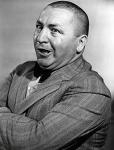-SWS wrote:Most of us CPAP patients tolerate that intrathoracic pressure increase just fine. However, certain types of cardiovascular patients can incur a potentially problematic decrease of venous return as a result of that CPAP pressure:
Shahrokh Javaheri, M.D wrote:
Central Sleep Apnea in Congestive Heart Failure: Treatment of Central Sleep Apnea
Furthermore, caution should be exercised with use of nasal CPAP. Because of increased intrathoracic pressure, cardiac output may decrease resulting in hypotension, particularly in patients with atrial fibrillation[99] and those in whom right ventricular volume pressure characteristics are on the ascending limb of the Frank-Starling curve. In such patients, right ventricular stroke volume is preload dependent, and a decrease in venous return could result in hypotension. A similar mechanism may result in hypotension in patients in whom left ventricular stroke volume is preload dependent. Such reduction in cardiac output could result in reduction in coronary blood flow and ischemia, particularly in patients with established coronary artery disease.
In those cardiovascular cases unnecessary CPAP pressure is not at all a good idea.
I understand this concern for patients with established coronary artery disease. But presumably the problem would exist for such a patient using APAP
regardless of sleeping position. And the DME simply said:
APAP is bad for side sleepers and said nothing about patients with heart disease.
So -SWS. please correct me if I'm wrong, but here's my understanding of APAP, heart disease and side sleeping :
1) Some patients do need to be cautious about too much CPAP pressure and among that group are patients with existing coronary artery disease and existing heart disease. APAP may not be the best choice for these patients
regardless of the patient's preferred sleeping position. And the quoted text seems to indicate that CPAP itself may be problematic for these patients to use as well.
2) Patients who prefer to sleep on their side are no more or no less likely to belong to the patients in the category listed in item 1) than those who prefer to sleep on their back or stomach. (And if this is not true, can you point me to some evidence that side sleeping is an indicator of higher than normal risk for coronary artery disease, for example?)
3) Therefor, there is no reason to tell a patient who you know sleeps on their side that side sleeping and APAP use are not a good combination. If you know the patient has real risks (such as the cardiac risks) with an APAP potentially providing too much pressure, cite the
real reason the APAP is a bad idea for them. If you don't know whether the side-sleeping patient has any real risks associated with APAP use, then treat them the same way you'd treat a back or stomach sleeper.











